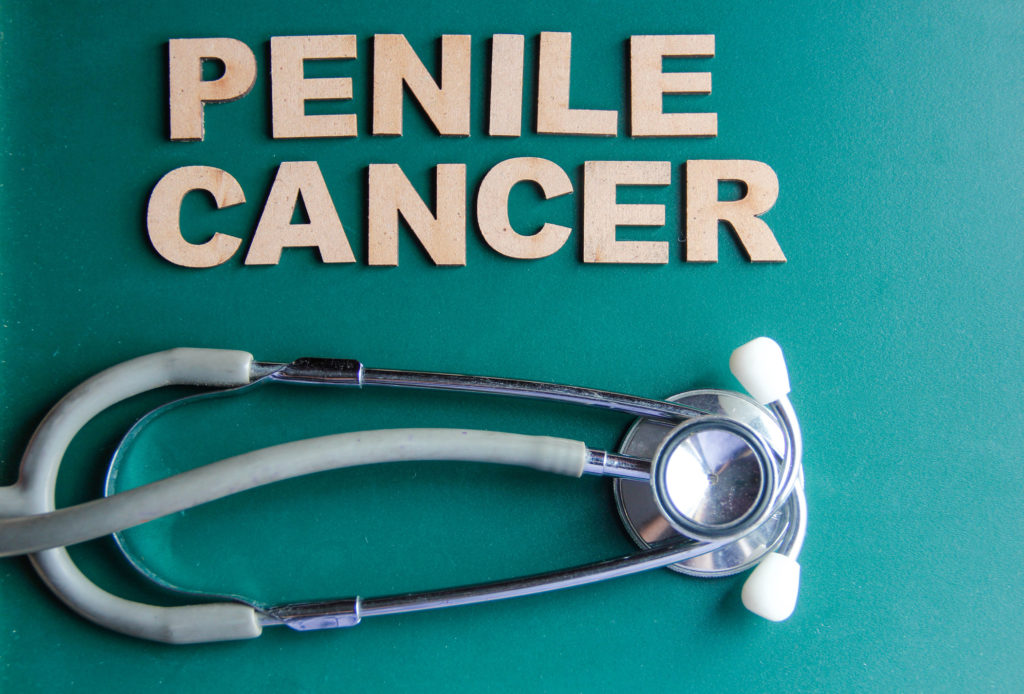The challenge of rare cancers: Spotlight on penile cancer
By Associate Professor Catherine Paterson, Associate Professor of Nursing, Faculty of Health, University of Canberra.
Globally, penile cancer is an uncommon cancer with a reported incidence of 1 per 100,000 men diagnosed. Squamous cell carcinoma (SCC) accounts for > 95% of the cases of penile cancer. There is a range of treatments for penile cancer depending on the stage of disease. The primary treatment for penile cancer is surgery, although in the case of precancerous changes or early stage malignancies, minimally invasive treatments such as topical chemotherapy (with imiquimod or 5-fluorouracil (5-FU)), laser therapy or brachytherapy may be suitable. Surgical treatment involves the removal of the primary tumour with or without performing inguinal (groin) and pelvic lymphadenectomy, depending on clinical indications or the histopathology. Surgery includes the resection of the primary tumour by circumcision, glansectomy (removal of the tissue at the end of the penis) or a partial or total removal of the penis known as a penectomy. A total penectomy will require a subsequent perineal urethrostomy. This is a surgical procedure that is performed to create a permanent opening at the perineum, which is the skin between the scrotum and the anus, to allow urine to exit the body and not pass along the length of the penis.

The rarity of penile cancer represents a significant challenge to the patient, partner and healthcare professional from initial diagnosis to treatment and into survivorship. All treatments can be disfiguring and can have a profound negative impact on the patient’s sexual function, quality of life, social interactions, self-image and self-esteem. Different modalities of treatment are associated with their own individual challenges for patients, complications, unique psychological burden, and unmet supportive care needs.
I recently led a large international team of researchers and completed a systematic review to evaluate evidence regarding the unmet supportive care needs of men affected by penile cancer and their partners to create a holistic model of care and inform clinical practice guidelines.
We performed a critical review of journals and resources including CINAHL (The Cumulative Index to Nursing and Allied Health Literature), MEDLINE, PsychINFO, Embase, and the Cochrane Library (CCRT and CDSR) controlled trials databases and clinicaltrial.gov from 1990 to June 2018 according to the Preferred Reporting Items for Systematic Review and Meta-analysis (PRISMA) statement. Eighteen publications were selected for inclusion in this analysis
Across these studies, men reported that the diagnosis and subsequent treatment of penile cancer affected physical, psychological and sexual well-being with each facet impacting and being intertwined with the other at varying degrees. There was varying complexity of unmet needs in men and partners pre-surgery, post-surgery and into survivorship.
In conclusion of this review, moderate evidence exists that men affected by penile cancer experience a range of unmet supportive care needs across the international literature. Further work to evaluate the impact of penile cancer on partners is required.
We reviewed the experience of unmet supportive care needs of men and their partner affected by cancer of the penis. We found good evidence to suggest new models of supportive care and access to specialist nurses are needed.
I am delighted to have been recently nominated as the deputy chair of the ANZUP Quality of Life and Supportive Care subcommittee. Priorities will include addressing important areas of unmet supportive needs to optimise quality of life in uro-oncology patient groups, affected by such rare cancers, which is fundamental to co-designing new innovative models and care pathways.
I very much look forward to supporting the work of ANZUP and to help drive forward research that is clinically meaningful addressing what matters most to people and their families affected by urogenital cancers.
